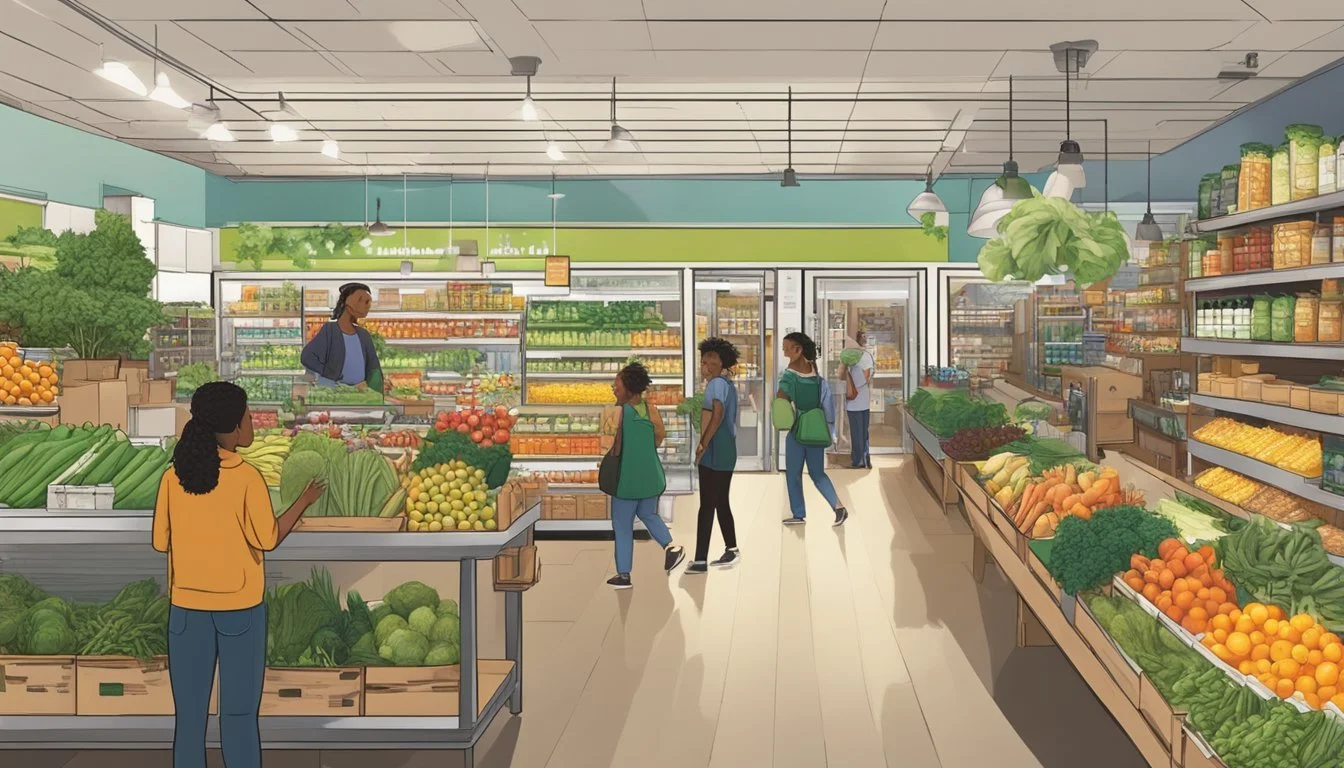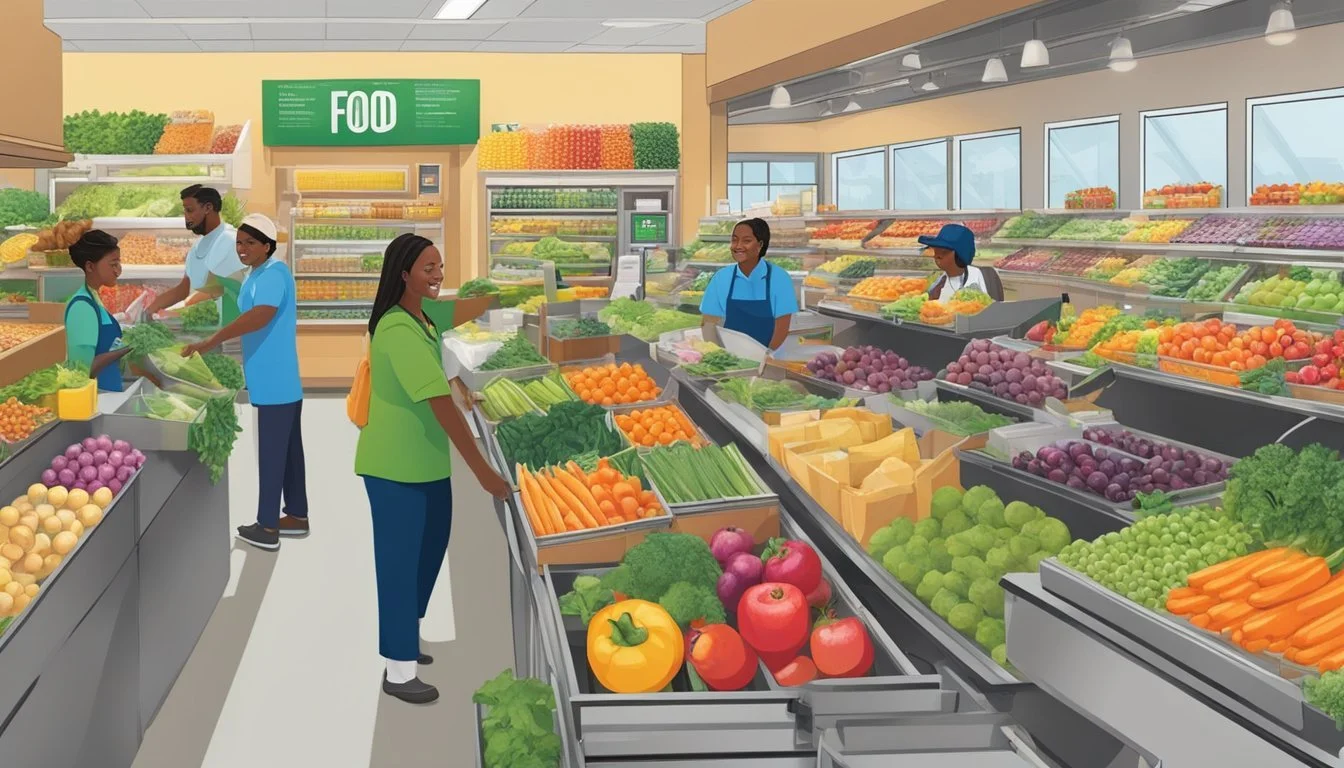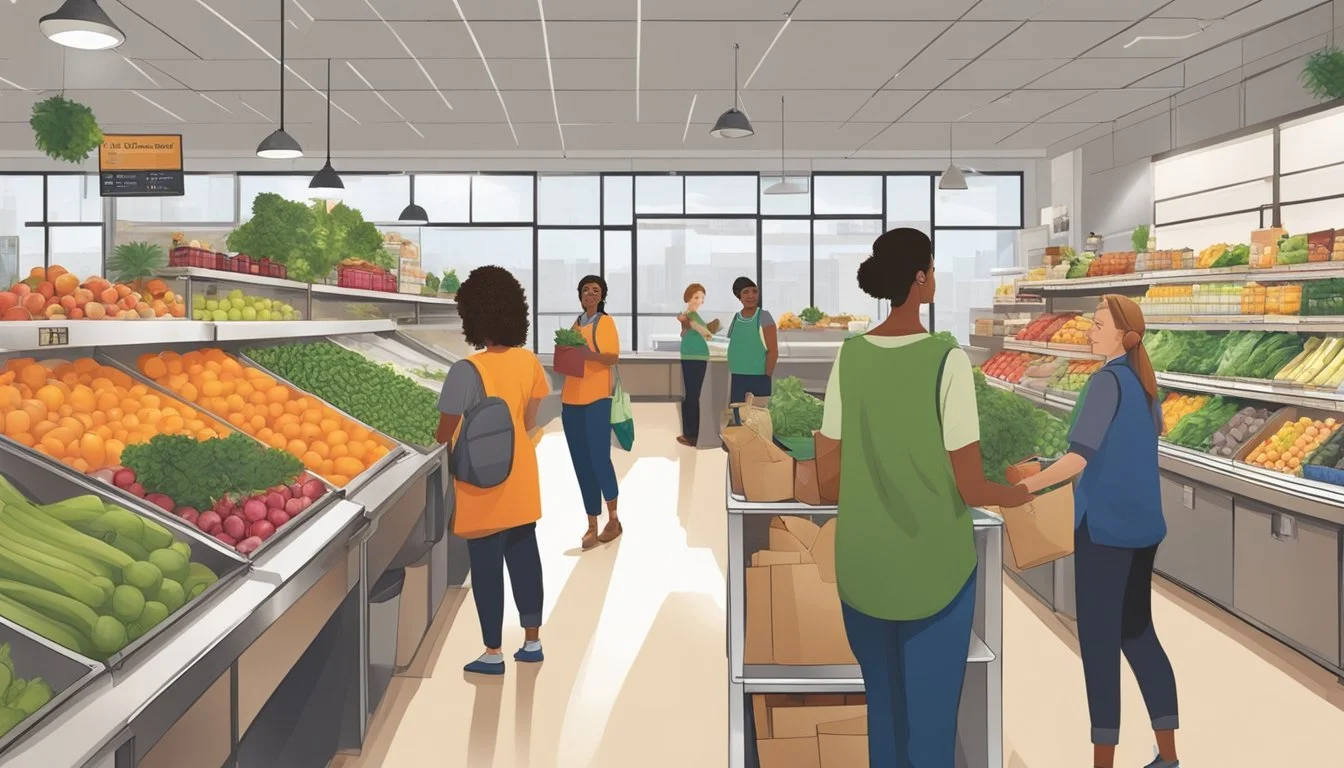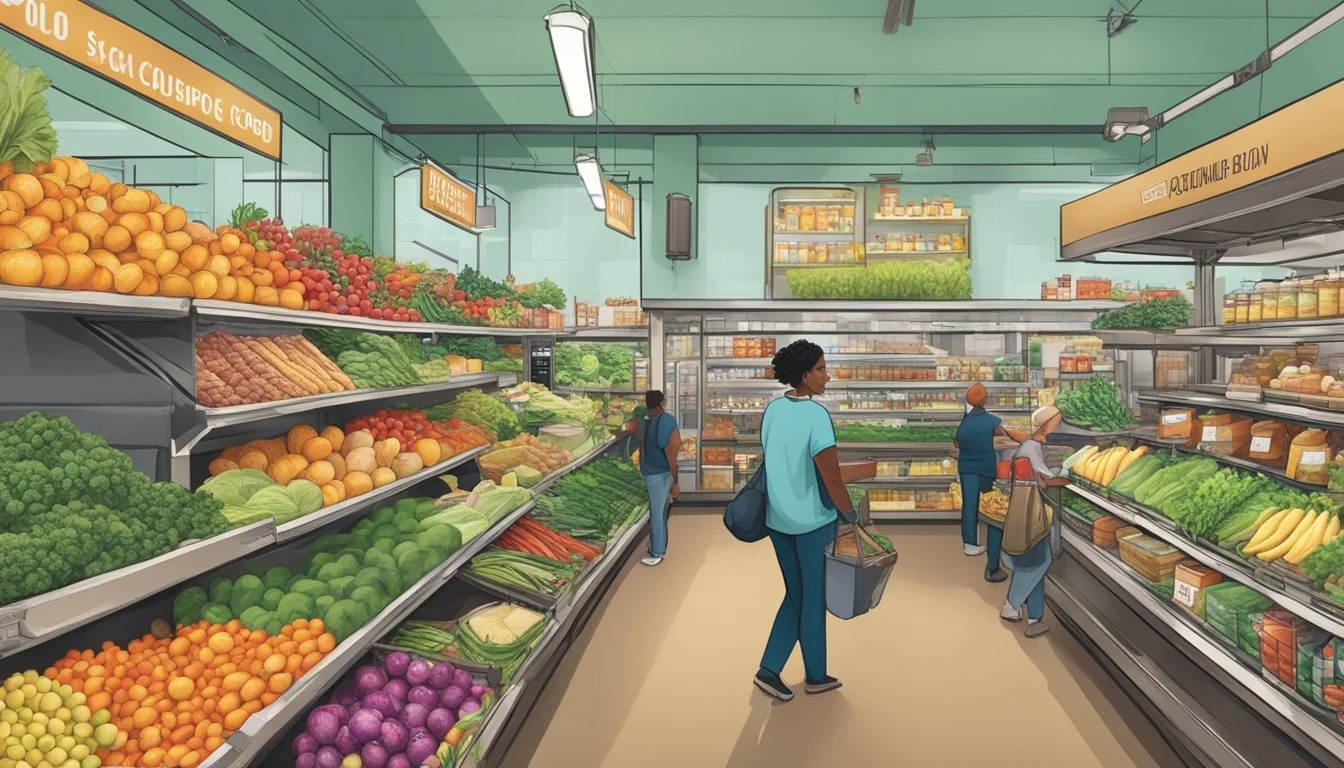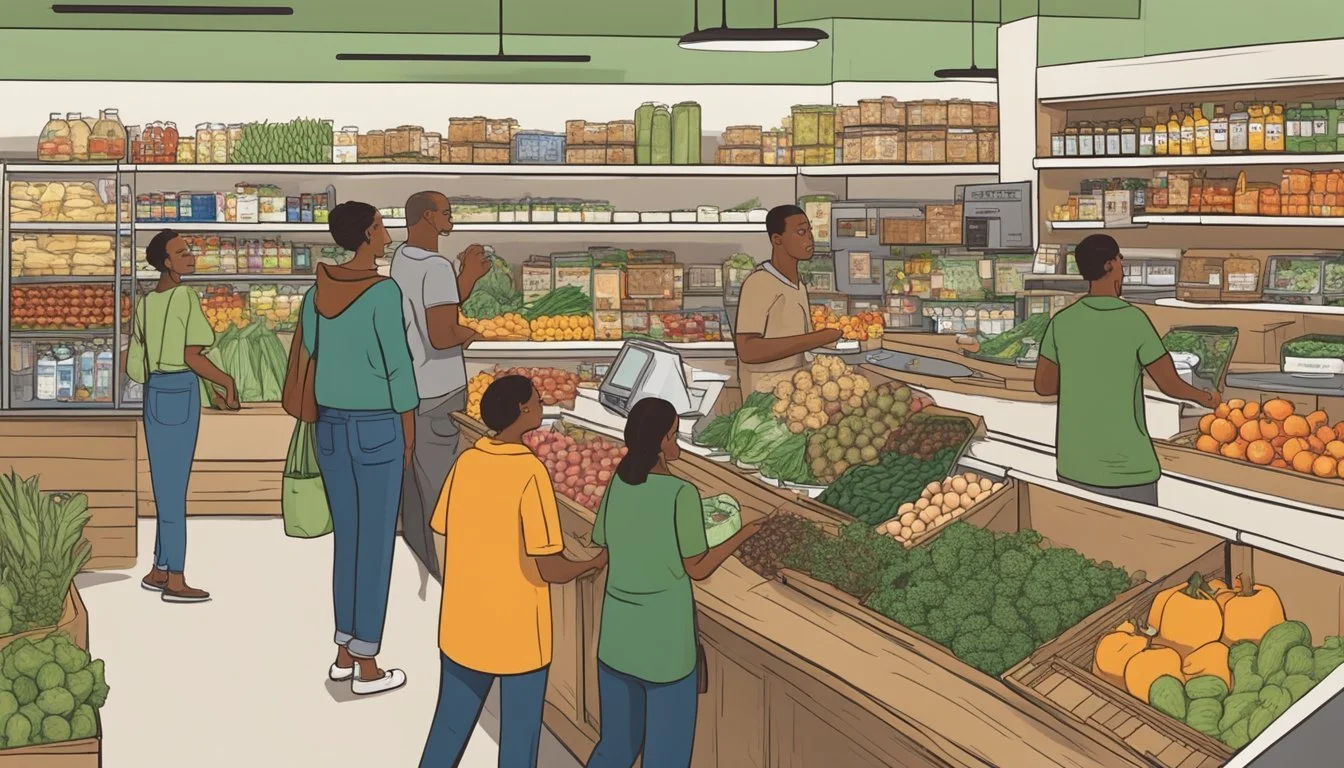Guide to Food Co-Ops in Philadelphia, PA
Your Essential Resource
Food cooperatives are becoming an essential component of Philadelphia's economic landscape, emphasizing community-driven, equitable access to quality food. Known for their unique business model where control and benefits are distributed among member-owners, food co-ops in Philadelphia stand out as a beacon of cooperative culture in an urban setting. These member-managed organizations offer more than just groceries—they foster a sense of community and support local economies, reinforcing the city's vibrant food scene with values such as sustainability and social justice.
In Philadelphia, the variety of food co-ops reflects the city's diverse population and culinary tastes. From longstanding establishments to new ventures, the cooperative scene in Philadelphia is thriving. The Philadelphia Area Cooperative Alliance (PACA) plays a notable role in nurturing this environment, supporting the growth and development of cooperatives across the city. PACA has witnessed the introduction of several new co-ops within the past year, adding to the already robust collection of cooperatives serving a range of neighborhoods.
These organizations frequently offer educational programs, social justice initiatives, and community events that go beyond simple transactions, deepening their impact on the city's socio-economic fabric. Shoppers in Philadelphia's food co-ops are not merely customers; they are participants in a movement towards a more fair and transparent food system. From the provision of high-quality, affordable staples through programs like Co-op Basics to actively supporting local suppliers, Philadelphia's food co-ops exemplify a sustainable approach to consumption and community well-being.
History and Background of Food Co-Ops in Philadelphia
Philadelphia's history with cooperative business models is a rich tapestry, with a lineage that includes the creation of the nation’s first mutual insurance company and a vibrant, present-day ecosystem of food co-ops.
Origins of Co-Operatives
Co-operative businesses, rooted in principles of shared ownership and democratic control, have a longstanding presence in Philadelphia. The Philadelphia Contributionship, established in 1752 by Benjamin Franklin, marks the earliest instance of a co-operative ethos in the city's history. It was not a food co-op, but its founding principles influenced future cooperative endeavors.
Growth of Food Co-Ops in Philadelphia
The city's modern landscape of food co-ops began to take shape with the founding of key organizations. Among them is Weavers Way Co-op, started in 1973, which has become a model for community-owned markets. Another notable entity is Mariposa Food Co-op, which has expanded significantly since its inception in 1971. Further, the Swarthmore Co-op is one of the oldest food cooperatives in existence, dating back to 1937.
The growth of food co-ops in Philadelphia has been supported by the Philadelphia Area Cooperative Alliance (PACA), a nonprofit advocating for cooperative businesses in various sectors, including food. According to PACA, there were at least 35 co-ops operating in Philadelphia, with seven new openings reported in a single year.
This expansion signals a thriving interest in community-owned food systems that prioritize economic justice and consumer empowerment. Local food co-ops stand testament to Philadelphia's commitment to cooperative principles that celebrate shared ownership and local empowerment.
Key Food Co-Ops in Philadelphia
Philadelphia hosts a variety of community-focused food cooperative initiatives that provide access to high-quality, locally-sourced products. These co-ops are membership-based organizations where consumers can buy a stake and have a say in the business operations.
Mariposa Food Co-Op
Mariposa Food Co-Op, located in West Philadelphia, prides itself on offering organic, locally produced, and sustainably sourced food choices. Membership is open to all, fostering an inclusive environment that directly benefits its local community.
Weavers Way Co-Op
Weavers Way Co-Op has established itself as a staple in the Philadelphia food scene with locations in Mt. Airy and Chestnut Hill. They supply a wide range of products, including organic produce, bulk items, and eco-friendly household goods, with a strong emphasis on community enrichment.
Swarthmore Co-Op
Swarthmore Co-Op is one of the oldest food cooperatives in the state, serving the Swarthmore community. They support local farmers and artisans, ensuring that members receive fresh and ethically sourced groceries.
Kensington Community Food Co-Op
Situated in the heart of Kensington, this Co-Op focuses on sustainable living by providing healthy food options and a community space. They strive to create a diverse and accessible food system for their members and local residents.
South Philly Food Co-Op
South Philly Food Co-Op is built by and for South Philadelphia residents. Its goal is to harness the power of food to unite neighbors and support local producers, thus contributing positively to the area’s food landscape.
Benefits of Joining a Food Co-Op
Joining a food co-op in Philadelphia has a range of benefits that align with economic sustainability, access to healthier food options, financial incentives for members, and fostering community engagement.
Support for Local Economy
Food co-ops typically source products from local farmers and producers, which keeps money circulating within the local economy. When consumers purchase at food co-ops, they effectively support Philadelphia's regional agriculture and contribute to the livelihoods of local growers and artisans.
Access to Fresh and Organic Produce
Members of a food co-op enjoy access to an array of fresh and often organic produce, which is directly sourced from local farms. This procurement method ensures that the produce available is not only fresh but also adheres to higher standards of organic certification.
Member Discounts and Credit Options
Food co-ops in Philadelphia usually offer various financial benefits to their members. These can include:
Member discounts: Reduced prices on products compared to traditional retail.
Credit options: Opportunities to build store credit through member labor or other cooperative contributions.
Community Engagement and Education
Co-ops can serve as educational hubs, where members and the broader community can learn about nutrition, sustainable practices, and the importance of supporting local food systems. Educational workshops, cooking classes, and volunteering opportunities are just a few avenues through which members can engage with their co-op community.
Operational Models of Food Co-Ops
Food cooperatives in Philadelphia employ diverse operational models, each with unique characteristics in terms of ownership, labor contribution, management practices, and revenue allocation. These models are designed to align with the co-op's mission, whether it's economic justice or community empowerment.
Member-Owned and Operated Structure
Food co-ops in Philadelphia primarily function on a member-owned and operated structure. In this model, the co-op is owned by its members who make a financial investment to become part of the cooperative. They have trust in the co-op's mission and contribute to its governance. Decision-making is typically democratic, with each member having a vote.
Volunteer Programs
Volunteer programs are integral to reducing operational costs and engaging the community. Many food co-ops encourage members to volunteer in exchange for discounts or other benefits. The volunteer efforts not only decrease labor expenses but also foster a stronger connection between the co-op and its patrons.
Management and Governance
The management and governance of a food co-op are often overseen by a board of directors elected by the members. This board sets policies and business models that align with the co-op's mission. Day-to-day operations can be managed by hired staff or member volunteers, depending on the co-op’s size and structure.
Profit-Sharing and Business Model
Most food co-ops reinvest their profits into the business or share them among members. The business model is designed to balance profitability with member needs, offering fair prices while sourcing ethically and locally. Profit-sharing can occur through annual dividends or reduced pricing on products. This model ensures that members receive direct value from the co-op's success.
Food Co-Ops and Community Outreach
Philadelphia's food co-ops actively engage with their communities through various programs aimed at education, wellness, inclusivity, and environmental sustainability. These initiatives reflect the co-ops' commitment to serve as more than just food retailers but as catalysts for social and economic change, accessible to all residents.
Education Initiatives
Food co-ops in Philadelphia recognize the importance of educating their members and the broader community on healthy eating and sustainable practices. For example, they may offer workshops on nutrition, cooking classes emphasizing the use of local and organic produce, and seminars discussing the socio-economic impacts of food choices. These efforts intend to empower individuals with the knowledge to make informed decisions about their diets and the food system.
Wellness Programs
Wellness is a principal focus for co-ops, often featuring programs that promote holistic health. Some co-ops provide discounts on wellness-related products and services or host yoga and meditation classes. They also cater to dietary needs by featuring a variety of healthy, organic options and providing labels and information for those with specific health-related concerns.
Food for All Programs
Aiming to address food accessibility, especially for low-income members of the community, the Food for All programs offer reduced prices on high-quality food items. Discounted membership fees or special pricing models ensure that nutritious food is not a privilege but a right accessible to everyone. Additionally, these programs are designed to eliminate the food deserts prevalent in urban areas, fostering a more equitable food landscape.
Environmental Sustainability
The commitment to environmental sustainability is rooted deep in the operation of food co-ops. They lead by example, integrating eco-friendly practices such as recycling, composting, and waste reduction. The co-ops support local agriculture, thereby cutting down on carbon emissions associated with long-distance transportation of goods. By advocating for and practicing environmental stewardship, food co-ops contribute to a healthier planet.
Comparisons and Alternatives
In this section, the focus is on how Food Co-Ops in Philadelphia stack up against traditional supermarkets and how the cooperative model extends into various sectors of the economy.
Food Co-Ops vs. Traditional Supermarkets
Food Co-Ops, unlike traditional supermarkets such as Whole Foods, operate on a membership basis where members have a say in the business. They prioritize local and sustainably sourced products. Co-Ops also often reinvest profits back into the community, which differs from the profit-maximization model of standard supermarkets. Here's a quick comparison:
Aspect Food Co-Ops Traditional Supermarkets Ownership Community/members owners Corporate/Investors Product Selection Local, sustainable focus Wide variety, national brands Profit Allocation Reinvested in co-op or shared with members Profits to shareholders Decision Making Democratic process among members Top-down management
Cooperative Economy and Other Sectors
Cooperative principles aren't limited to food retail. They permeate other sectors such as credit unions and housing cooperatives. Credit unions are financial cooperatives owned by their members, offering similar services as banks but with the primary intent of serving their members rather than maximizing profits. Worker cooperatives are businesses owned and managed by their workers, aiming to create equitable and fair working conditions. Philadelphia's cooperative economy reflects a diverse network where economic control rests within the local community, fostering a more inclusive economic environment.
Challenges Facing Food Co-Ops
Navigating the landscape of the food cooperative market requires overcoming notable challenges, especially in urban centers like Philadelphia. Food co-ops grapple with multiple hurdles that affect their growth and sustainability.
Economic and Competitive Pressures
Food co-ops in Philadelphia face considerable economic and competitive pressures. They compete with conventional supermarkets and online grocery delivery services that benefit from economies of scale, allowing for lower prices. Additionally, the influx of large chain stores and discount grocery markets into the urban landscape intensifies competition, shrinking the market share available to food co-ops.
Economic Pressures:
Thin profit margins
Limited capital for expansion and improvements
Competitive Pressures:
Price competition from bigger retailers
The need for unique offerings to attract consumers
Maintaining Accessibility and Affordability
In striving to uphold principles of accessibility and self-determination, food co-ops also wrestle with keeping their produce and products affordable. While co-ops aim to provide high-quality, locally sourced, and organic options, maintaining price points that are inclusive to all community members can be challenging.
Accessibility Concerns:
Balancing quality with cost
Ensuring diverse populations can participate and benefit
Affordability Issues:
Sourcing affordable organic products
Keeping member fees reasonable to not exclude potential members
Future of Food Co-Ops in Evolving Markets
The future of food co-ops in Philadelphia depends on their ability to adapt to an evolving market. They must stay relevant and appealing to consumers who have a growing number of choices. Co-ops need to adopt innovative strategies while maintaining their commitment to community and self-determination, all the while recognizing shifting consumer trends and adapting accordingly.
Adaptation Strategies:
Implementing technology for efficiency and customer engagement
Expanding service offerings, such as educational workshops on nutrition and sustainability
Commitment to Values:
Staying true to cooperative principles in a changing economy
Continuing to serve as a model for economic self-help and community integrity
Resources and Further Reading
When seeking comprehensive information about food co-ops in Philadelphia, interested individuals can turn to local organizations dedicated to cooperative models and published educational material. These resources offer insights into starting, joining, and supporting food co-ops.
Local Organizations and Alliances
Philadelphia Area Cooperative Alliance (PACA)
Address: Philadelphia, PA
Description: PACA supports various cooperative sectors in the Philadelphia region, including food co-ops, and offers resources for cooperative development and education.
Germantown
Location: Germantown, Philadelphia, PA
Description: As part of a community with robust cooperative activities, Germantown residents and organizations engage in food co-op initiatives.
Educational and Research Publications
"Own the Change"
Format: Documentary (22 minutes)
Published by: TESA Collective
Publication Year: 2015
Description: This film provides a guide to starting worker co-ops, with an emphasis on the practical challenges and benefits.
Research Articles and Books
Location: Can be accessed through libraries around Philadelphia, including those near Dartmouth Ave and Baltimore Ave.
Description: Scholarly articles and books on cooperative economics and food co-ops are valuable for those researching detailed information about co-op models.
Conclusion
Philadelphia’s food co-ops provide a unique and valuable service to their communities. These co-ops offer affordable access to high-quality groceries, emphasizing equitable and democratic principles. With more than 35 co-ops across various sectors, the city’s cooperative scene is diverse and growing, reflecting the city's commitment to economic justice.
Members benefit from discount programs like the one where a mere $5 annual fee can yield a 10% discount on purchases. Moreover, initiatives like the Co-op Basics ensure essential items remain accessible to all members of the community. It's evident that the food co-ops have evolved significantly, transitioning from shared basements to sizeable storefronts, and catering to both food deserts and affluent neighborhoods.
The South Philly Food Co-op stands as a testament to a decade of community effort towards establishing a member-owned grocery store. This persistence signifies the steadfast resolve of Philadelphians channeling their energies into sustainable and community-focused food systems.
In summary, Philadelphia’s ascending co-op landscape serves as a powerful model for cooperative economics and community empowerment. One can clearly see the adaptability and resilience of the food co-op model within urban settings, striving to meet diverse needs and fostering communal ownership.
Appendix
This appendix serves as a resource for readers who wish to deepen their understanding of food cooperatives in Philadelphia, offering definitions, a directory of local co-ops, and a list of references.
Glossary of Terms
Cooperative (Co-op): An autonomous association of persons who voluntarily cooperate for their mutual social, economic, and cultural benefit.
Member-Owner: An individual who has invested in and owns a share of the cooperative, entitling them to benefits such as voting rights and profit sharing.
Food Co-op: A food distribution outlet organized as a cooperative, meaning it is owned and operated by its members.
Directory of Philadelphia Food Co-Ops
Bethlehem Food Co-op
Status: Forming
Location: Bethlehem, PA (within the greater Philadelphia area)
South Philly Preschool Co-op
Status: Forming
Location: South Philadelphia, PA
Weavers Way Food Co-op
Status: Established
Locations:
Mt. Airy: 559 Carpenter Lane, Philadelphia, PA 19119
Chestnut Hill: 8424 Germantown Avenue, Philadelphia, PA 19118
Ambler: 217 E. Butler Avenue, Ambler, PA 19002
East End Food Co-op
Status: Established (Over 40 Years)
Location: 7516 Meade Street, Pittsburgh, PA 15208
The Energy Co-op
Sector: Energy and Food co-op
Status: Established (PACA member)
Location: Philadelphia, PA
References
Philadelphia Area Cooperative Alliance (PACA)
They provide resources and support for existing and startup co-ops in the Philadelphia region.
"Food Co-Ops Are on the Rise in Philly" - Philadelphia Magazine
An article discussing the impact of food co-ops on local communities.



